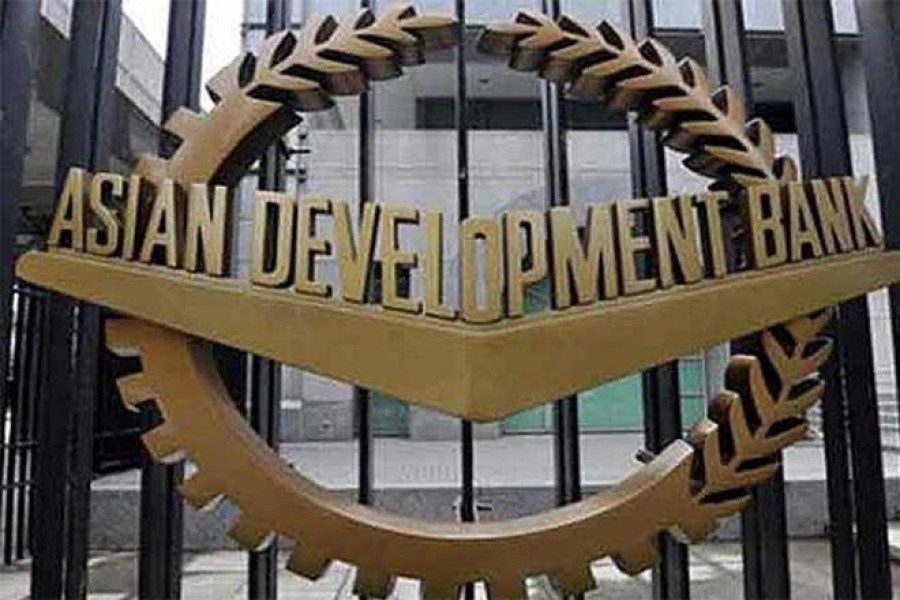The Asian Development Bank's (ADB) Board of Directors has approved a new long-term corporate strategy -- Strategy 2030 -- that sets out the institution's broad vision and strategic response to the evolving needs of Asia and the Pacific.
Climate finance from ADB's own resources will reach $80 billion for the period 2019 to 2030.
The ADB will apply differentiated approaches to meet the diverse needs of various groups of countries: fragile and conflict-affected situations, Small Island developing states, low-income and lower middle-income countries, and upper middle-income countries, reports UNB.
Across these country groups, ADB will also prioritise support for lagging areas and pockets of poverty and fragility.
"Asia and the Pacific has made great progress over the last half century in poverty reduction and economic growth, but there are unfinished development agendas," said ADB President Takehiko Nakao.
Under Strategy 2030, he said, they will combine finance, knowledge, and partnerships to sustain their efforts to eradicate extreme poverty and expand our vision towards a prosperous, inclusive, resilient, and sustainable region, according to ADB media release.
ADB's aspirations are aligned with major global commitments such as the Sustainable Development Goals, the Financing for Development agenda, the Paris Agreement on climate change, and the Sendai Framework for Disaster Risk Reduction.
Given the size of Asia and the Pacific, the ADB says, achieving such commitments will depend critically on the region's success.
Strategy 2030 recognises that the ambitious global development agenda must be tailored to specific local circumstances, it says.
ADB will strengthen its country-focused approach, promote the use of innovative technologies, and deliver integrated interventions that combine expertise across a range of sectors and themes and through a mix of public and private sector operations.
ADB said they will continue to prioritise support for the region's poorest and most vulnerable countries.
Infrastructure investments - particularly those that are green, sustainable, inclusive, and resilient - will remain a key priority.
At the same time, ADB will expand operations in social sectors, such as education, health, and social protection.
ADB's support will focus on seven operational priorities: (i) addressing remaining poverty and reducing inequalities; (ii) accelerating progress in gender equality; (iii) tackling climate change, building climate and disaster resilience, and enhancing environmental sustainability; (iv) making cities more livable; (v) promoting rural development and food security; (vi) strengthening governance and institutional capacity; and (vii) fostering regional cooperation and integration.
A new corporate results framework-expected to be ready in mid-2019-will include more targets for ADB's other operational priorities.
To support the seven operational priorities under Strategy 2030, ADB will expand and diversify its private sector operations to reach one third of ADB operations in number by 2024.
"We will expand our private sector operations in new and frontier markets, such as fragile and conflict-affected situations and small island developing states. We will also support more public-private partnerships," said Nakao.
ADB's private sector operations will help improve environmental, social, and governance standards; provide financing that is not available from the market at reasonable terms; improve project design and development outcomes; and mitigate perceived risks.
In addition to innovative infrastructure, they will increase support for agribusiness, and support social sectors such as health and education through private ventures.
ADB will continue to be a reliable financier and catalyser of finance. "A key measure of our success will be the volume and quality of additional resources we mobilize on top of our own financing," Nakao added.
ADB targets a substantial increase in long-term co-financing by 2030, with every $1 in financing for its private sector operations matched by $2.50 in long-term co-financing.
In preparing Strategy 2030, extensive consultations were carried out with a wide and representative group of stakeholders across ADB's membership, leading development experts, and civil society organisations.
ADB said it is committed to achieving a prosperous, inclusive, resilient, and sustainable Asia and the Pacific, while sustaining its efforts to eradicate extreme poverty.


